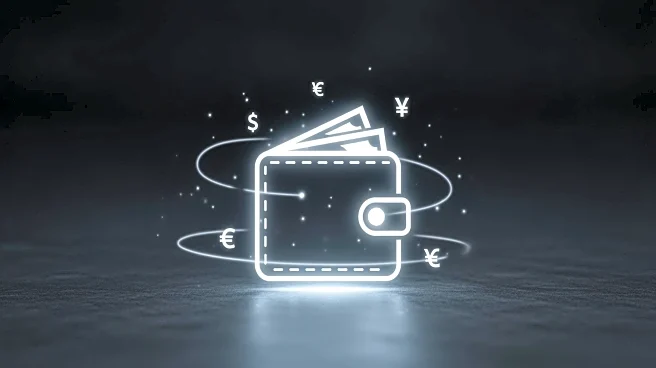What's Happening?
Sequoia-backed fintech platform Aspora has launched a new feature allowing the Indian diaspora to pay bills directly in India. This development enables non-resident Indians (NRIs) to pay utility bills and
recharge mobile prepaid plans for their families without transferring money to Indian accounts or facing high charges and payment failures. Aspora has integrated with the Bharat Bill Payment System (BBPS) through Yes Bank, facilitating payments for over 22,000 billers in India. The startup is not charging fees for these payments and offers competitive exchange rates. Aspora's founder and CEO, Parth Garg, highlighted the complexity of bill payments for Indians living overseas and emphasized the convenience of the new feature. The company has been testing this feature with positive results and plans to expand its availability to customers in the U.S. and UAE soon.
Why It's Important?
The introduction of Aspora's bill payment feature is significant for the Indian diaspora, particularly in the U.S., which represents the largest inward remittance market for India. By simplifying the process of paying bills in India, Aspora is addressing a long-standing challenge faced by NRIs, potentially reducing remittance volumes but increasing user engagement with the platform. This move could enhance Aspora's market position and user retention, as frequent transactions are encouraged. The fintech's expansion into the U.S. market aligns with its strategic growth plans, leveraging the substantial remittance flow from the U.S. to India.
What's Next?
Aspora plans to expand the availability of its bill payment feature to customers in the U.S. and UAE, further tapping into significant remittance markets. The company aims to launch NRE and NRO accounts next year, allowing users to manage foreign and Indian income more effectively. These developments could strengthen Aspora's foothold in the fintech sector, attracting more users and investors.
Beyond the Headlines
Aspora's initiative reflects broader trends in fintech innovation, where companies are increasingly focusing on user-centric solutions that address specific pain points. The integration with BBPS and partnerships with international companies like Ding for mobile recharges highlight the importance of collaboration in expanding service offerings and enhancing user experience.









